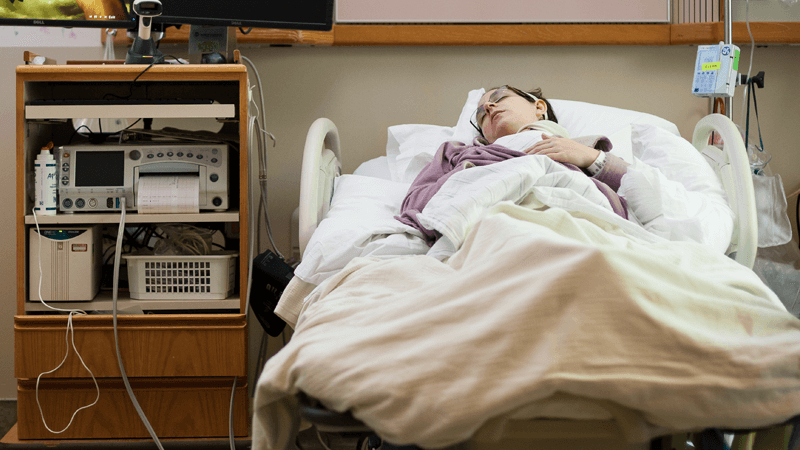A teenager is recovering after a bleed on the brain left her with ‘locked-in’ syndrome.
Miranda Meldrum suffered a near-fatal stroke in April last year, aged 13, leaving her almost completely paralysed.
Her mother Stella was asked at one point if she would agree to turn off her daughter’s life-support system.
Signs of recovery
Miranda initially had to communicate by blinking to answer basic yes or no questions and spent the first three months of her recovery in Bristol Children’s Hospital’s intensive care unit.
She said, “I was thinking most of the time, ‘move’. Nothing happened. Then ‘move’ and still nothing, then ‘move’ and there was a little flicker”.
The teenager has since regained movement in almost all of her body, and with help is able to eat, talk and walk. She is now working alongside physiotherapists to further improve her mobility.
“Now after 14 months I can move every part of my body”, she said.
Happy
‘Locked-in’ syndrome leaves people with fully functioning minds but with little or no ability to communicate.
The condition is frequently used by campaigners as a reason to legalise assisted suicide in the UK.
Earlier this year, 12-year-old Jonathan Bryan – a child branded “unteachable” – authored a 192-page book about his life with ‘locked-in’ syndrome.
Last year, during a pioneering study into ‘locked-in’ syndrome, patients reported being ‘happy’ despite the difficulties of the condition.


